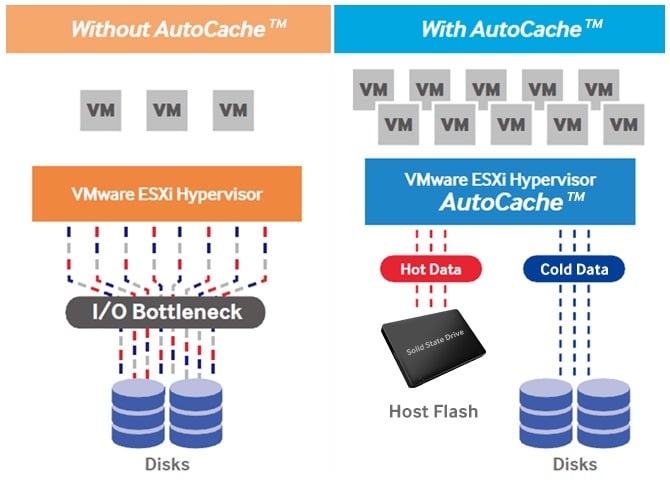
Samsung has announced that HPE has selected its AutoCache host-based caching software to be made available to end users as an add-on to HPE’s Generation 9 server family. HPE server models include the DL360, DL380, DL560, DL580 and ML580. The Samsung AutoCache complete caching solution will allow HPE customers to improve application performance and overall storage efficiency.
Supporting both physical and virtual servers, AutoCache is one of the first caching solutions to leverage VMware vSphere APIs for IO Filtering, which creates a fully supported write-back caching in virtualized environments. In addition, AutoCache ensures that frequently requested data (or “hot data”) is cached and serviced by SSDs, which helps to eliminate storage performance bottlenecks and speeds up application response time.
AutoCache can also accelerate a range workloads and databases such as Online Transaction Processing (OLTP), real-time big data analytics, data warehousing, business intelligence applications, Virtual Desktop Infrastructure (VDI), public and private cloud environments, and general virtualized workloads.
Supporting read, write-around and write-back caching, Samsung indicates that there AutoCache technology allows a 400% increase in disk I/O performance in each VM by removing common I/O bottlenecks in virtual environments associated with multiple virtual machines accessing storage resources. In addition, it helps to lower overall storage and infrastructure costs in virtualized data centers by providing vertical integration from storage device to host.
AutoCache will be available through HPE beginning sometime this month.
Samsung AutoCache caching solutions
Sign up for the StorageReview newsletter

